#Mahayana
Text
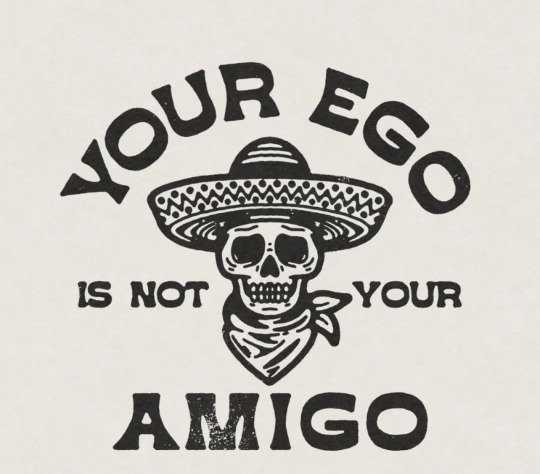
Know your enemy
29 notes
·
View notes
Photo
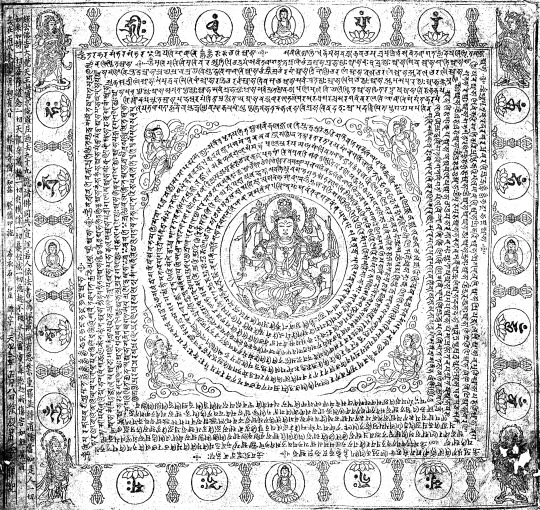
Pratisara Mantra, 927 CE, found near Luoyang, China
1K notes
·
View notes
Text
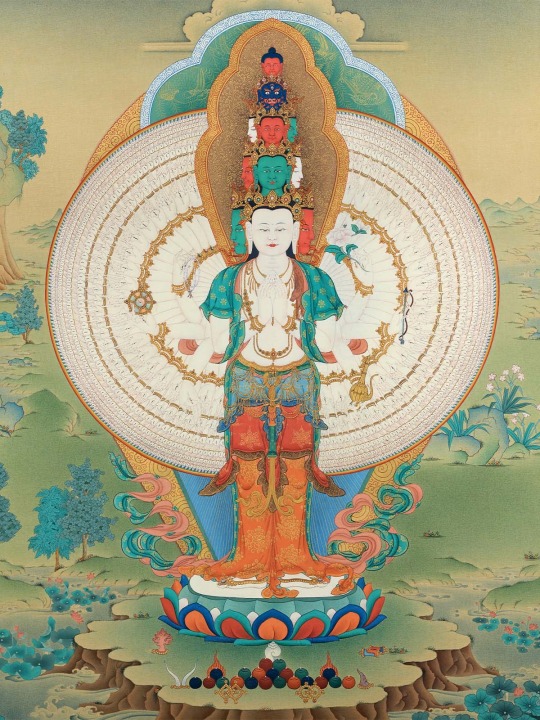
“When the holy Bodhisattva Avalokitesvara had truly grasped the transcendent wisdom, he realized that visible form is only illusion. The same applies to its perception, to its names and categories, to discriminative intellect and finally even to our consciousness. They are all illusion. With this realizaton he was beyond all sorrow and bitterness.
Disciple Sariputra! The material is not different from the immaterial. The immaterial and the material are in fact one and the same thing. The same applies to perception, concepts, discriminative thinking and consciousness. They are neither existing nor not existing.
Sariputra! All things therefore they are in themselves not good and not bad, they are not increasing and not decreasing.
Therefore one may say there are no such things as form, perception, concepts, thinking process, and consciousness. Our senses such as eye, ear, nose, tongue, body and mind are misleading us to illusion; thus one may also say there is no reality in visible form, sound, smell, taste, touch and mindknowledge. There are also no such things as the realms of sense from sight up to mind, and no such things as the links of existence from ignorance and its end to old age and death and their end. Also the caturāryasatyāni are nonexistent, just as there is no such thing as wisdom and also no gain.
Because the holy Bodhisattva who relies on transcendent wisdom knows that there is no gain, he has no worries and also no fear. Beyond all illusion he has reached the space of highest Nirvana.
All Buddhas of the past, present and future, found highest perfect knowedge because they relied on transcendental wisdom.
Therefore we ought to know that the great verse of the transcendent wisdom is unsurpassed in its splendor, and that it appeases truly all pain. It reads:
GATE, GATE, PARAGATE, PARASAMGATE BODHISVAHA!”
-The Heart Sutra.
#buddhism#buddhist#books#history#literature#religion#theology#mysticism#esotericism#religious#philosophy#sutra#eastern philosophy#mahayana#Mahayana Buddhism#dharma#Dharmic#India#china#Thangka#buddhist art#art#asian art#aesthetic#religious quotes#religious aesthetic#tradition#traditionalism#traditional art
22 notes
·
View notes
Text
Dharma Listening
One of the most important lessons I have learned from my experience of the Jodo Shinshu tradition is how to listen to the Dharma. I am utterly incapable of doing it properly, however. Still, when I have gleaned insight from it, it is because I could, for even a moment, truly hear what the words of the Dharma are saying.
When we read books, we are not just reading words off a page. We are conceptualizing the meanings of those words in their context on the page through our own lens. We never just read a book. We derive meaning from it by bringing our own biases to the reading.
This isn't always a bad thing. In fact, many creative authors rely on this to subvert the reader, creating an amazing story by tricking us into believing one meaning while communicating another. Authors also grapple with this problem of bringing our biases, and they become skilled at writing according to their audiences in order to facilitate a change of mind in the reader. Such twists and turns are what make reading, as well as other forms of media, fun and intellectually stimulating.
Authors who teach the Dharma must grapple with the same tendencies. And it is often difficult for new readers (like myself) to fully internalize what the author is saying because we either don't understand or don't *want* to understand what they are saying. There have been many times when I read a piece about Buddhism and simply ignored or discarded a line that doesn't suit my sensibilities. An example from Rennyo: "The mind/that even once/relies on Amida: that mind/is in accord/with the true Dharma."
This verse is from Rennyo Shonin's letters (Letter 4, Fascicle 4). It is truly a mind-boggling statement. The idea that such high attainment (being in accord with the true Dharma) is so easy (relying on Amida for a single moment) is hard to believe on its own. Yet it is at the core of Jodo Shinshu: With the one thought-moment of reliance, we are immediately saved by Amida from birth and death and are certain to be reborn in the Pure Land. So why is it so hard to believe?
When I read that line initially, I thought of...laziness. I thought of how such a view is lazy. Surely, this is a teaching for people who do not want to put in the work necessary for enlightenment, I thought to myself. And when I read it now, those thoughts still come up! However, they are also accompanied by a small joy that I have not experienced before. Even though my mind tries to scream and cry to drown the words out, I still "hear" them.
These thoughts come from a mindset that I brought to the text when reading it. In my life, people who don't want to work have been called lazy time and time again. I myself have done this, and I have also been called lazy myself. Growing up, this dichotomy of "lazy" versus "determined" was drilled into me from the cultural norm known as the "protestant work ethic." This is the attachment of value to hard work, especially concerning one's job. American folklore is filled with examples of this, from John Henry and Paul Bunyan to the myth of the self-made millionaire or billionaire in the modern day. But this is antithetical to what Rennyo is saying here, as well as other Jodo Shinshu writers going all the way back to Shinran.
Hearing these lines now, I must confess that I still struggle with this conflicting set of views. But I know that they are true. After all, the goal of a Buddha is to make others like themself: free from attachment and affliction and able to act with perfect wisdom and compassion. The best way to do that is to make a path that is so easy that anyone, regardless of capacity, could complete it. Hence, Amida realized the name and forged his vows to create this easy path.
In my mind, I'm immediately skeptical of shortcuts. And while the Jodo Shinshu path is still difficult in some ways, it is certainly easier. But here, the Buddha is saying, "Come on! I made this shortcut for you! Trust me, and you'll reach the other shore!" And I have to blame only myself and my preconceived biases for being hesitant.
Listening to the Dharma as someone new to Buddhism requires us to put aside our own views as best we can and open our minds to a new way of thinking about the world. Even if we disagree with what it is saying, we will only get the message if we can listen with an open mind. If we project our ideas onto the Dharma, we will just be reading a copy of our own thoughts. It is difficult, however, to put one's ideas aside and listen to something new with an open mind. After all, if detaching from our erroneous views were easy, then there would be no need for the many paths of Buddhism. Therefore, We should be thankful for authors who speak on the Dharma in ways that are designed to bring us to a new mode of thought from our current condition or in a way that is so plain and direct that misinterpretation becomes nearly impossible. I have found that many Jodo Shinshu figures, like Rennyo, Yuien-bo, and Shinran, fall within the latter category. As a result of reading them repeatedly, the walls of my own views are broken down by their straightforward words, which are easy to understand and digest. I cannot help but come to understand them, even when I am at the same time entrenched in my own views. This example is just one concept in Jodo Shinshu that is difficult to internalize, but I am happy to say that, little by little, I'm starting to get it.
20 notes
·
View notes
Text
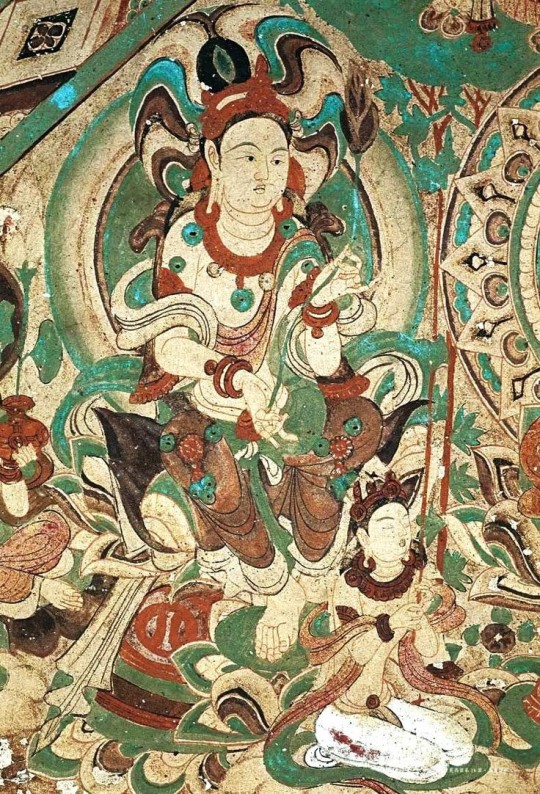
Early Buddhist depiction of a bodhisattva with lotus (padma) in hands.
#buddhism#buddha#mahayana#blue#vajrayana#nirvana#samadhi#meditation#cave paintings#padma#lotus#dukkha#bodhisattva#☸️
12 notes
·
View notes
Text
If you're a Western convert to an Eastern religion, it can be difficult to get rid of that little Greek philosopher in your ear. You have to challenge what you were conditioned to believe is true and learn to restructure much of how you see the world. The transformation is quite profound though, and can honestly be really liberating.
Leave Plato behind, he can't hurt you anymore.
#buddhistmusings#philosophy#religion#buddhism#meditation#theravada#theravada buddhism#buddhist#christianity#daoism#mahayana
27 notes
·
View notes
Photo





on heartbreak
a comic by aurie
I want to say that I don’t claim to represent all of Buddhism. I can only represent my limited insight into its vast teachings, and my own experiences, at 26 years of age. Further insight is welcome in the comments, but like the masters say, there is a keen difference between conceptual knowledge you can share with me and embodied understanding I can receive. Please be respectful of my thoughts and feelings if you disagree with anything I’ve written.
Thank you for reading. 💛
99 notes
·
View notes
Text
“...the eyes are the condition for forms to be seen, but the consciousness that depends on the eyes has no form. The ears are the condition for sounds, but the auditory consciousness has no form. The nose is the condition for smell, but the olfactory consciousness has no form. The tongue is the condition for taste, but the gustatory consciousness has no form. The body is the conditioning factor for touch, but the tactile consciousness has no form. Neither the sphere of mental objects nor knowledge have form”.
--Bhadrapāla Sūtra
#sutra#bhadrapala#buddhism#sanskrit#mahayana#meditation#sensation#sense#sensory organs#literature#religious studies#comparative religion
280 notes
·
View notes
Text
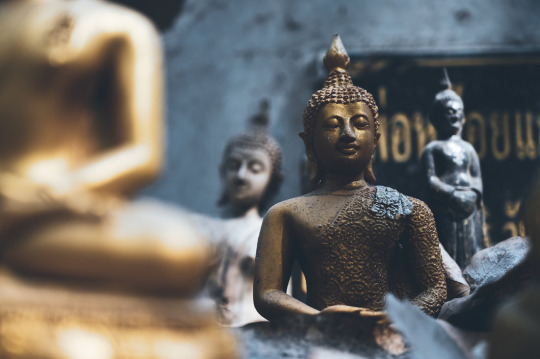
The Voice of the Silence: The Great Perfections
Learn the principles, laws, or qualities of the soul as explained within Christic Buddhism:
1. DANA, the key of charity and love immortal.
2. SHILA, the key of Harmony in word and act, the key that counterbalances the cause and the effect, and leaves no further room for Karmic action.
3. KSHANTI, patience sweet, that nought can ruffle.
4. VIRAG, indifference to pleasure and to pain, illusion conquered, truth alone perceived.
5. VIRYA, the dauntless energy that fights its way to the supernal TRUTH, out of the mire of lies terrestrial.
6. DHYANA, whose golden gate once opened leads the Narjol toward the realm of Sat eternal and its ceaseless contemplation.
7. PRAJNA, the key to which makes of a man a god, creating him a Bodhisattva, son of the Dhyanis. ―The Voice of the Silence
The final lecture of this course explains the Paramitas or Perfections of Mahayana Buddhism in relation to the Christic teachings: the fundamental principles in which a bodhisattva of compassion develops. Through the paramitas, the master sacrifices him or herself for humanity while developing bodhichitta: compassion for humanity and insight into the abstract nature of reality: the profound and limitless emptiness of the Absolute within Hebraic Kabbalah.
#gnosticism#spirituality#gnosis#awakening#meditation#consciousness#gnostic#spiritual#chicago gnosis#samael aun weor#gnostic academy of chicago#gnostic teachings#gnostic tradition#esoteric christianity#tibetan buddhism#tantric buddhism#mahayana#bodhicitta#bodhisattva#religion#religions#mystical experiences#mysticism#mystical#mystics#esoteric knowledge#helena blavatsky#scripture#chicago gnosis podcast#meditation podcasts
19 notes
·
View notes
Text

Look!
This is your world!
You can't not look.
There is no other world.
This is your world; it is your feast.
You inherited this; you inherited these eyeballs; you inherited this world of color.
Look at the greatness of the whole thing. Look!
Don't hesitate - look!
Open your eyes.
Don't blink,
and look, look - look further.
~ Chögyam Trungpa
157 notes
·
View notes
Text
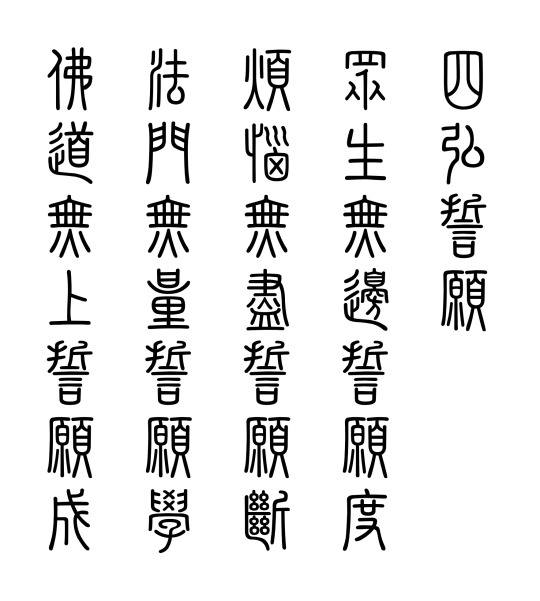
The Four Encompassing Vows
Masses of creatures, without bounds, I vow to save.
Anxiety and hate, delusive desires inexhaustible, I vow to break.
Dharma gates beyond measure, I vow to learn.
Buddha’s Way, unsurpassable, I vow to accomplish.
#bodhisattva#buddhism#mahayana#buddha#dharma#salvation#eschatology#teleology#nirvana#four noble truths#chinese#kanji#seal script
45 notes
·
View notes
Text
In seeing things
To be or not to be
Fools fail to see
A world at ease.
- Nagarjuna (Verses from the Center)
34 notes
·
View notes
Photo
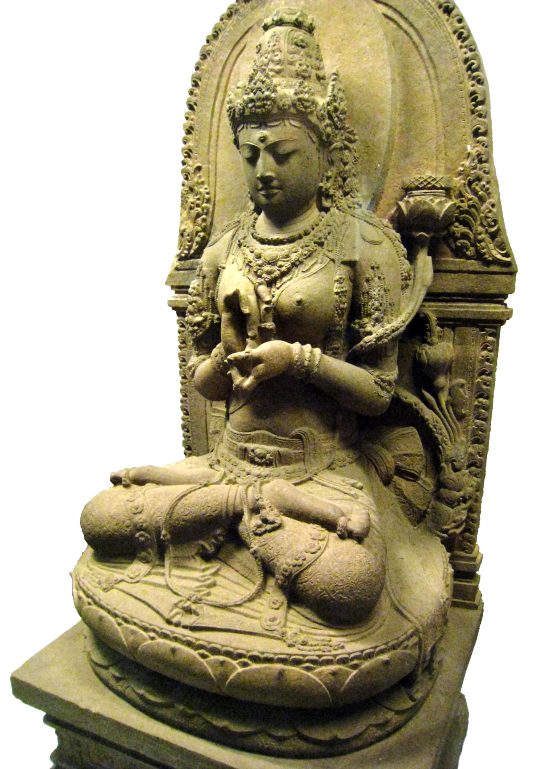
Prajñāpāramitā of Java
#prajnaparamita#mahayana#theravada#buddhism#gnosis#philosophy#nature of reality#bodhisattva#goddess#statues#southeast asia#java#indonesia#13th century#transparent
85 notes
·
View notes
Text
You think I'm a good person?
If I were a good person, I would be able to accept the Buddha's wisdom without a shred of doubt.
If I were a good person, I would not delight in poison.
If I were a good person, I would do good selflessly, benefiting friends and enemies alike.
And if I were a good person, I would be free. I am not free.
I'm not a good person. That doesn't mean I'm some kind of serial killer or sociopath, going around manipulating and exploiting people for my own gain. But I live my life selfishly. I do things which should not be done, think things which should not be thought, and say things which should not be said.
It is because of this, not in spite of it, that Amida's Vow is the only path for me. I will not accomplish the Buddha Way. I cannot make the Bodhisattva Vows honestly, knowing I won't fulfill them. And this is precisely what makes me the target of the Vow. It actually makes it EASIER to go to the Pure Land because the Path of Birth Through the Nembutsu is designed that way. Shinran states "Even a good person can make it to the Pure Land. How much easier it is for the evil person to get there!"
My karma is heavy. I regret myself. Namu Amida Butsu.
20 notes
·
View notes
Text
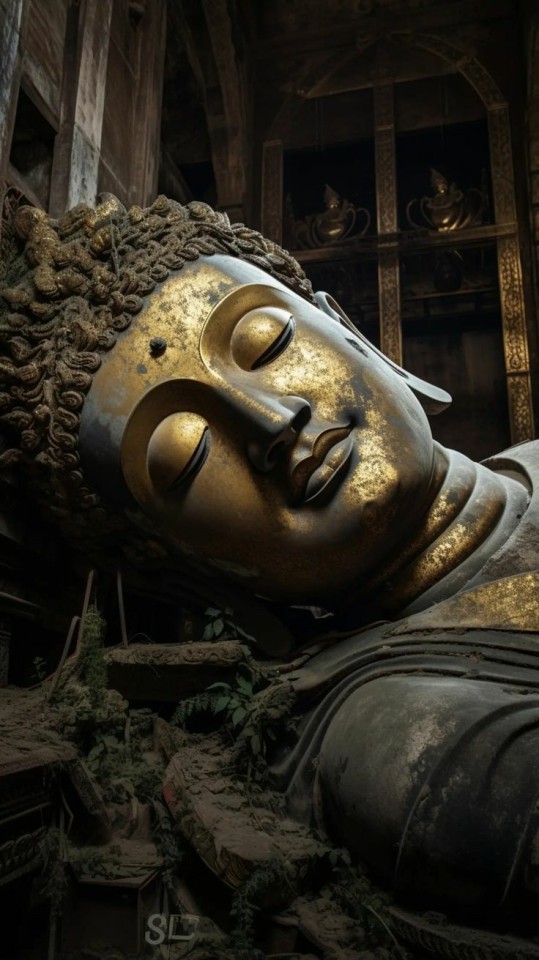
Paranirvana of Sakyamuni Buddha.
13 notes
·
View notes
Text
Some nights, my heart is heavy with suffering, and I struggle to remind myself of what most often helps me.
That this body and mind are temporary and marked by a flowing and changing nature. There's nothing going on here worth clinging to. Not my joys, much less my sorrows. This suffering is natural, but can be overcome through effort, ethics, and meditation.
Liberation is real - and so much of my suffering has already been defeated.
May all beings be happy, may all beings be free. 🙏🙏🙏
#buddhistmusings#philosophy#religion#buddhism#meditation#theravada#theravada buddhism#buddhist#christianity#mahayana
8 notes
·
View notes